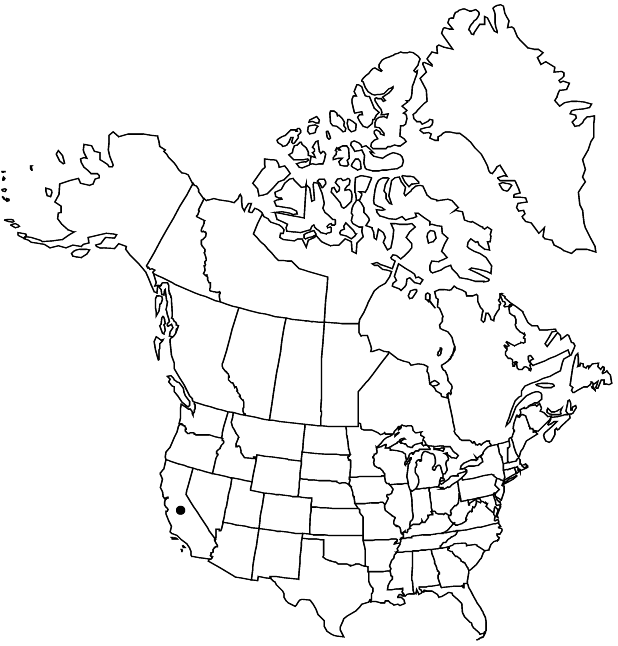Arctostaphylos pacifica
Leafl. W. Bot. 9: 217. 1962 ,.
Shrubs, prostrate or mound-forming, 0.1–0.3 m; burl present, sometimes epicormic; twigs short-hairy. Leaves: petiole 2–4 mm; blade light green abaxially, dark green adaxially, shiny, elliptic, 1–2 × 0.5–1 cm, base cuneate, margins serrulate, plane, surfaces smooth, sparsely hairy. Inflorescences racemes, (simple or 1-branched); immature inflorescence pendent, (congested), axis 0.5–1 cm, 1+ mm diam., short-hairy; bracts appressed, scalelike, awl-like, 0.5–1 mm, apex acute, glabrous. Pedicels 3–5 mm, glabrous. Flowers: corolla white, urceolate; ovary glabrous. Fruits (reddish), globose, 6–8 mm diam., glabrous. Stones distinct.
Phenology: Flowering winter–early spring.
Habitat: Sandstone outcrops
Elevation: 300 m
Discussion
Of conservation concern.
A distinctive species with an uncertain origin, Arctostaphylos pacifica has often been relegated to hybrid status and ignored; it displays a number of unique characters not found in any other species. It is found only at one location, San Bruno Mountain, the northern part of the Santa Cruz Mountains, San Mateo County. The relationships of this species need additional study.
Selected References
None.
